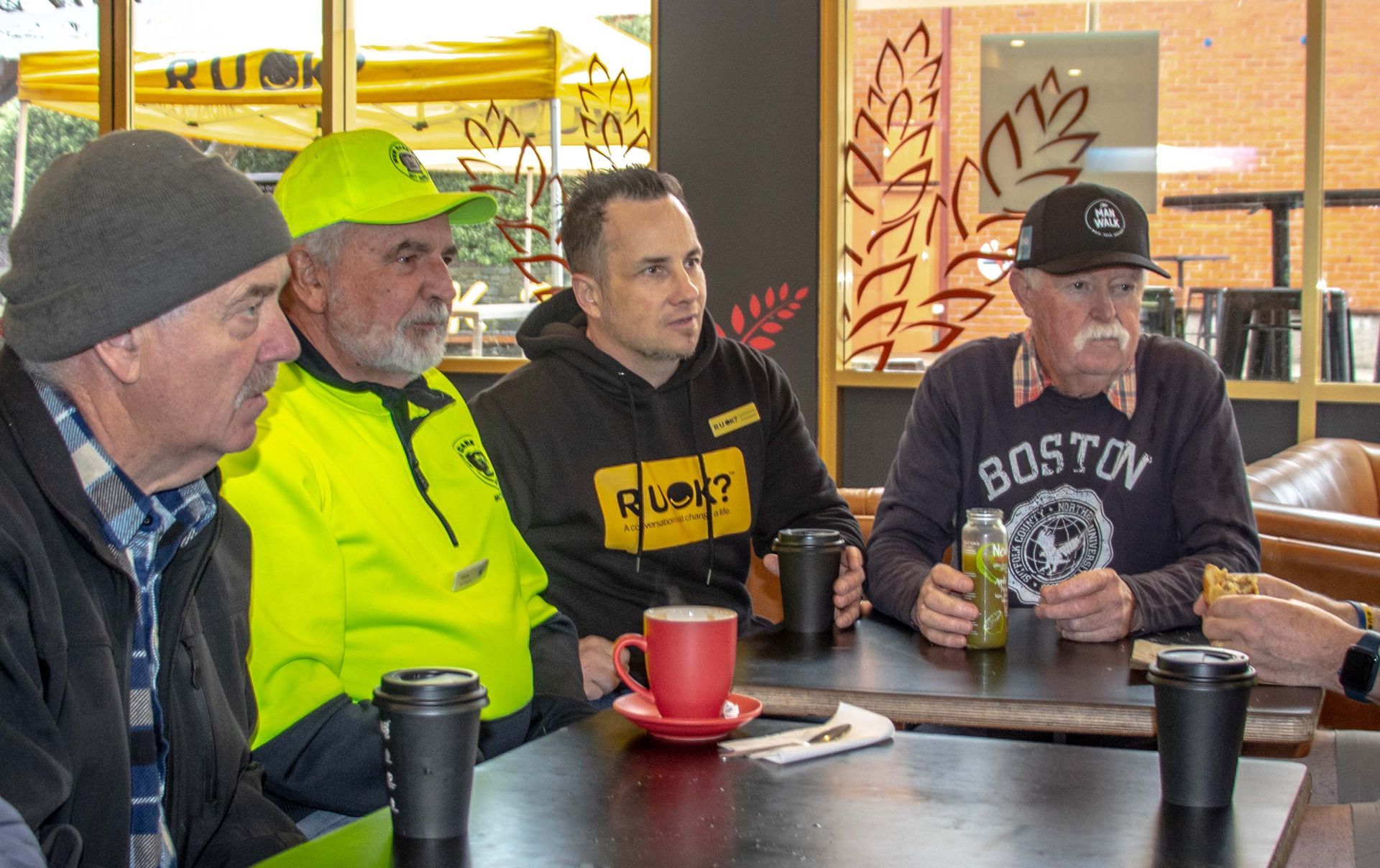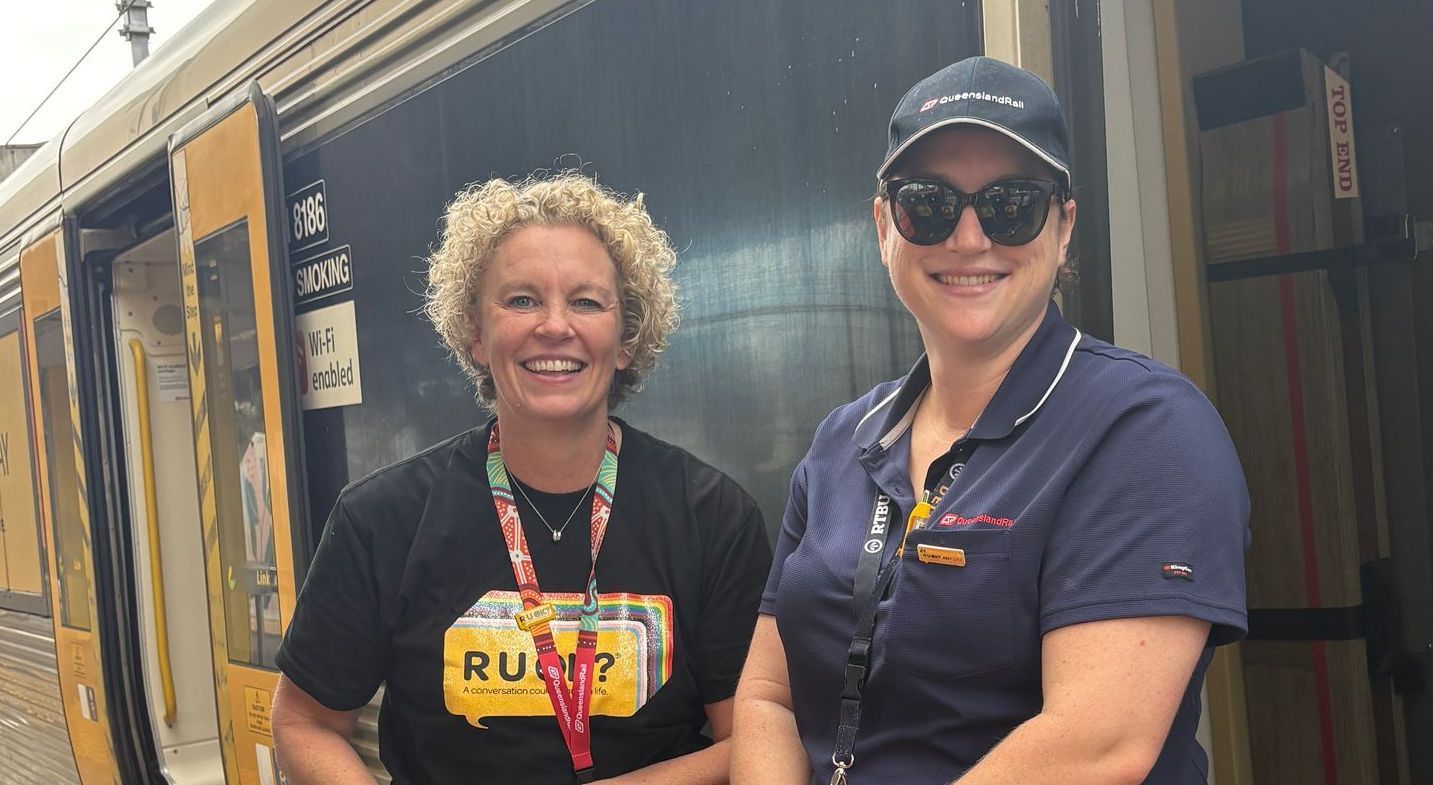Job loss, or reduction in hours and income can be hard to talk about – especially if your job is left intact. It can be an awkward, murky and guilt-ridden conversation to navigate. We might feel it’s better to avoid the topic instead of talking about it.
That’s why we’re sharing tips on how to talk about it from Rachel Clements; the co-founder and Director of Psychological Services at the
Centre for Corporate Health
(CFCH).
Rachel believes friends and family play an important role in helping someone manage the career transition phase and emotional rollercoaster after losing a job.
“There are lots of things colleagues, family and friends can do to help someone regain their balance and feel a sense of comfort, confidence and control”.
“When our work life is in a state of flux, people rely on and draw strength from their personal life. Friends and family should stay connected to the individual and check in regularly - whether it’s by phone, video call or the odd SMS. You might have to be more proactive in initiating contact, rather than waiting for them to reach out. Sometimes it’s hard for people to reach out and ask for help when they are going through a difficult time”.
Often individuals will continue to work for a period after receiving the news that their position has been made redundant or will experience reduced hours in the future. Rachel believes colleagues can be a key source of support and practical assistance during this time.
“After losing a job or experiencing a reduction in hours of work, people go through a rollercoaster of emotions. If you are concerned a colleague is struggling with the transition, make time to check in with them. Talk to them about what their next steps are, what are some things they might be able to do next, reinforce their strengths or help them with networking contacts”.
“When people are in distress it can be hard to think of a plan or next steps and when people are able to do that they start to feel a little bit more in control. Your practical assistance can make a difference.”
There are also steps managers can take to buffer the level of distress and protect the wellbeing of staff affected by redundancies, job loss or major changes at work.
“Think about what you can offer affected employees to assist them during the transition period. If the individual hears you’re willing to support them through the process and offer practical support, like career transition assistance, it helps them feel supported and ends the working relationship on a positive note”.
“Messaging is key. Delivering the news in a sensitive and professional manner can make a big difference. It can stop someone from feeling highly distressed at the end of the conversation and help keep their wellbeing and confidence intact.
And if the person does become distressed, Rachel suggests this:
“If someone becomes distressed, sensitivity is very important. The person delivering the message should pause at that point. Don’t bombard them with all the practical details of their package or the business rationale of how the decision has been made. Allow them to feel whatever they are feeling. It might be anger, tears or shock. Just listen and try to empathise. Use statements like ‘We understand this is distressing or a shock for you’ to help them get through that emotional phase. When the emotions appear to be decreasing you can let them know there’s other important information you’d like to share with them by asking, ‘Are you ready to hear that now?.”
Rachel emphasises the impact on other staff should never be underestimated.
“Managing the process sensitively, professionally and respectfully reassures other staff they will be treated well if they are ever in that position. It can help maintain morale.
“Redundancies often send a message of fear and concern for people’s job security. It’s very important to be completely open and honest about how the changes could possibly impact people. If there are gaps in knowledge people will often fill them with rumours, which can have a negative impact on team morale. It can help to check in with staff and reassure them their job is secure. Allow people to talk about how these changes have impacted them in order to understand their concerns and be able to support them better”.
Rachel Clements is a member of the
R U OK?
Conversation Think Tank and believes conversations can make a difference.
For crisis support call Lifeline on 13 11 14.
If you or someone you care for is feeling overwhelmed, visit
ruok.org.au/findhelp
for support services and self-care tools.
CFCH Careers incorporates resilience training to ensure wellbeing through career transition. For more information on their services call 02 8243 1500 or email
[email protected]





















